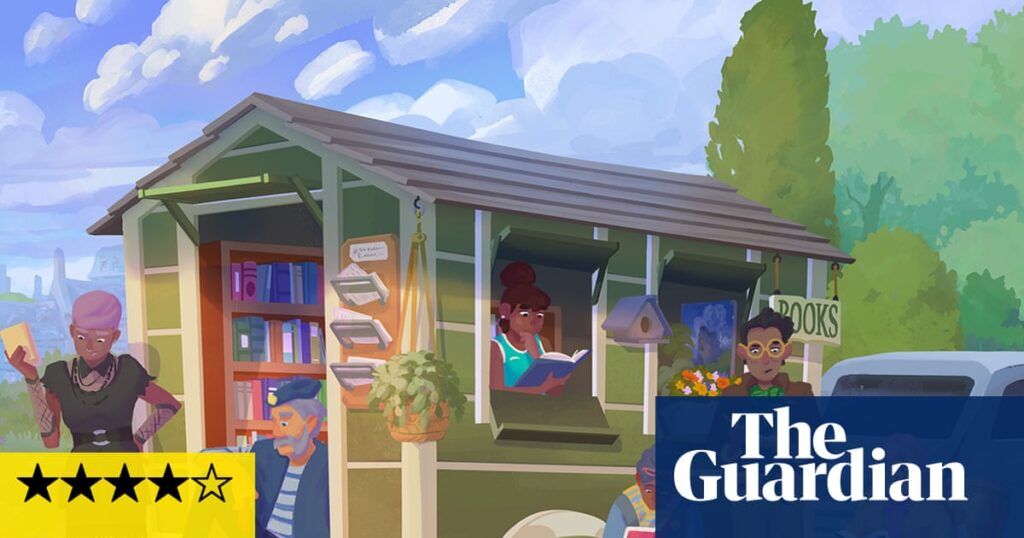It is a rare thing in my experience that a resource management simulator, set in a retail or service environment, can strike the precise tone and pace that manages to evoke both interest and relaxation. As a player who previously worked as a bookseller, and currently is a novelist, I am poised to be extremely stressed out by a game set in a mobile bookshop. However, Tiny Bookshop is crafted with such care and balance that I found myself losing hours to the gentle pace and tiny puzzles and sheer escapism of the world it presents.
The setup is simple, and one that is common to many games in the post Stardew Valley era of “cosy” games. You throw in your old life and open a shop selling tiny things you are passionate about to a bustling little community full of interesting characters who you progressively develop relationships with by providing them with goods and services. Days, weeks and seasons pass, the world grows richer and more interesting around you, the stakes rise and fall, a tiny economy evolves from your business.
However, what is different this time is that you are not selling farmed goods as in Stardew Valley, or tea as in Spirittea or Wanderstop, or, in the case of Spiritfarer, shepherding dying souls to the other side via your floating bed and breakfast. You’re selling books. Actual books. From Wilde and Shakespeare and Woolf and Agatha Christie all the way through to Toni Morrison and John Green and Holly Black, you are providing the inhabitants of a sleepy seaside and university town with books that are recognisable and real. Every book that you stock in your little trailer shop is, to my knowledge, a real one.
Now, this will place some players at an advantage – if you’re a reader, selling books to people will come easily. You won’t need to study the flavour text to compare books the customers like with books you have in stock: if they’re looking for something scary, romantic, and historical, Carmilla ticks all the boxes. You’ll know what graphic novels feel a little heady, or which ones are for a more casual reader.
This feels to me like a rare game made with readers in mind: the puzzle of finding which books suit which customer’s request comes quite quickly, even if the in-game algorithm sometimes didn’t match my personal taste. I think The Great Gatsby would appeal to a customer looking for philosophical fiction, but the game doesn’t. Like working in an actual bookshop, there are genres and categories that serve a watertight function; unlike working in a bookshop, personal taste doesn’t come into it. However, Tiny Bookshop is adept at teaching you its rules, and recommending the wrong title doesn’t come at a high cost. The stakes aren’t too steep. There is no real way to lose.
I played using the touchscreen on my Steam Deck, which I found deeply pleasing and responsive compared to using the buttons, which were a little tricky. Decorating my tiny bookshop was great: discovering I could acquire a shop dog was a real joy. The local characters are quite a serious bunch and hold some old dramas and pathos – there is a sense of a lush, lived-in community unravelling secrets and context as the seasons pass by. It is the first new game I’ve found myself truly relaxing into in quite some time: the gameplay is rhythmic and mellow, and, dare I say it, genuinely cosy. Tiny Bookshop provides players with a job that doesn’t feel like a job but a lovely escape into words and stories.

